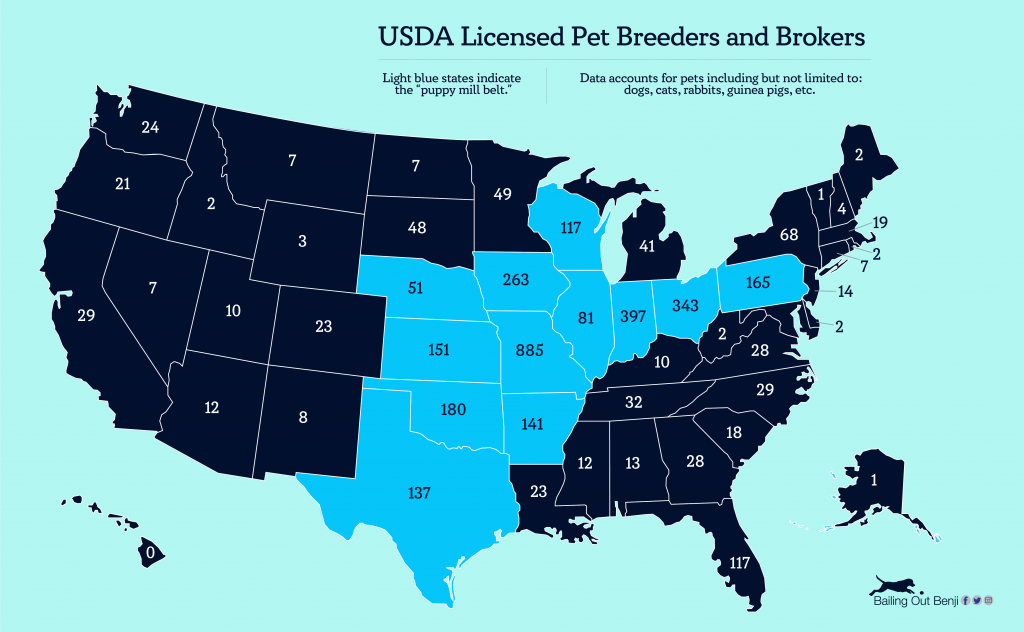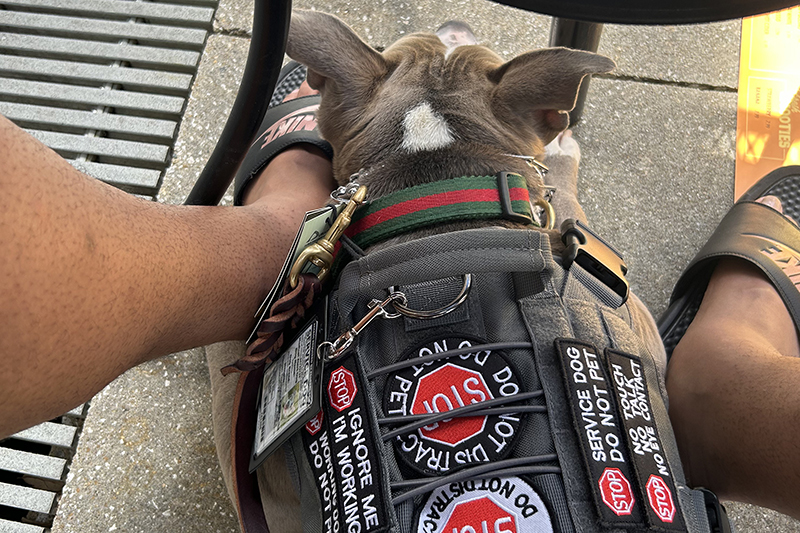Baltimore rapper DDm Debuts That’s My Dog to showcase BIPOC Pet Ownership
December 27, 2021Inspiring Black History Month Speaker Series Starts Now
January 30, 2022Who are the victims of puppy mills? Written by Mindi Callison of Bailing Out Benji
When the public thinks about puppy mills, they often think of unlicensed, illegal facilities where dogs are being caged for profit. They think that humane organizations like Bailing Out Benji can just kick the door down, save all of the dogs and put the owner in jail.
But none of that is really accurate.
Most puppy mills across the country are not only legal, but they are licensed by the Department of Agriculture. The lax laws that these facilities follow are nothing more than survival standards for the adult breeding dogs. These sentient beings are sentenced to a life of cruelty when customers buy their puppies in stores and through websites without first doing their research. In the rare occasion that a licensed puppy mill is shut down, it not only takes months of court hearings but the dogs are usually allowed to be auctioned off to the highest bidder instead of being rescued. This entire industry relies on secrecy and suffering.
We talk a lot about the suffering of the parent dogs, and rightly so, but the customers and puppies suffer too.
In the animal welfare world, we are all guilty of judging people too quickly because we are blessed with hindsight. That is never more clear than when we start discussing people who buy puppies in stores.
In the animal welfare world, we are all guilty of judging people too quickly because we are blessed with hindsight.
Mindi Callison
When I was 19 years old, I had never heard of puppy mills. Those sad commercials on TV made me instantly turn the channel, Facebook wasn’t really a thing yet and I was honestly too busy with college to even look into researching an issue that I had no idea was a thing. So when I walked into my local Petland just to play with the puppies, I had no idea that I was walking into a business that would change my life forever and be the catalyst for the founding of Bailing Out Benji. The next few hours were a flurry of sales pitches, puppy cuddles, credit card applications and empty promises. After all of that, I took my extremely hyper Siberian husky back to my tiny apartment and busy life- with no clue that I had just perpetuated the puppy mill cycle. While today I can acknowledge that I didn’t make an educated decision, back then all I knew was that I walked into a store just to play with a puppy and I fell victim to pushy sales people.

You see- customers are the victims too. They are deceived and pushed into impulse purchases all while a store touts their ‘no puppy mill promise’. Back then, when a poor college student couldn’t afford a $1500 puppy, Petland just gave them a credit card. In 2022, pet stores have gotten into the business of providing predatory leases and loans with interest rates of upwards of 200% on top of the cost of puppies that have skyrocketed to $5,000-$10,000 a piece. These predatory stores take advantage of low-income families who can’t afford the cost of a dog outright. The stores use buzz words like “low-monthly payment” and “interest-free for a year” to convince people to sign away their credit score without a second thought. The customers walk out the door with their new family member, a packet of paperwork they will never read and no idea what just happened.
The customers who wind up with a healthy puppy are the lucky ones. Far too often the puppies sold in pet stores are either immediately sick with kennel cough, giardia, and coccidia or fall victim to severe genetic diseases that pop up down the road. For those families who got a lease or a loan, they are now stuck with expensive veterinary bills on top of their monthly payments. And if that puppy dies- they are still on the hook for each payment until the puppy is paid off.
And all of this is legal.
The pet stores are able to gouge the price of puppies, offer predatory leases and loans and lie about the origins of the animals in their store.

But what happens when the store gets in trouble? More than 400 localities across the country have passed humane ordinances which prohibit pet stores from partnering with puppy mills but there are still around 600 puppy-selling stores across the country who have this business model.
Since pet stores are a legal business, they are often able to get away things that the general public would never believe.
Learn more about Puppy Mills, what you can do and resources to share.





